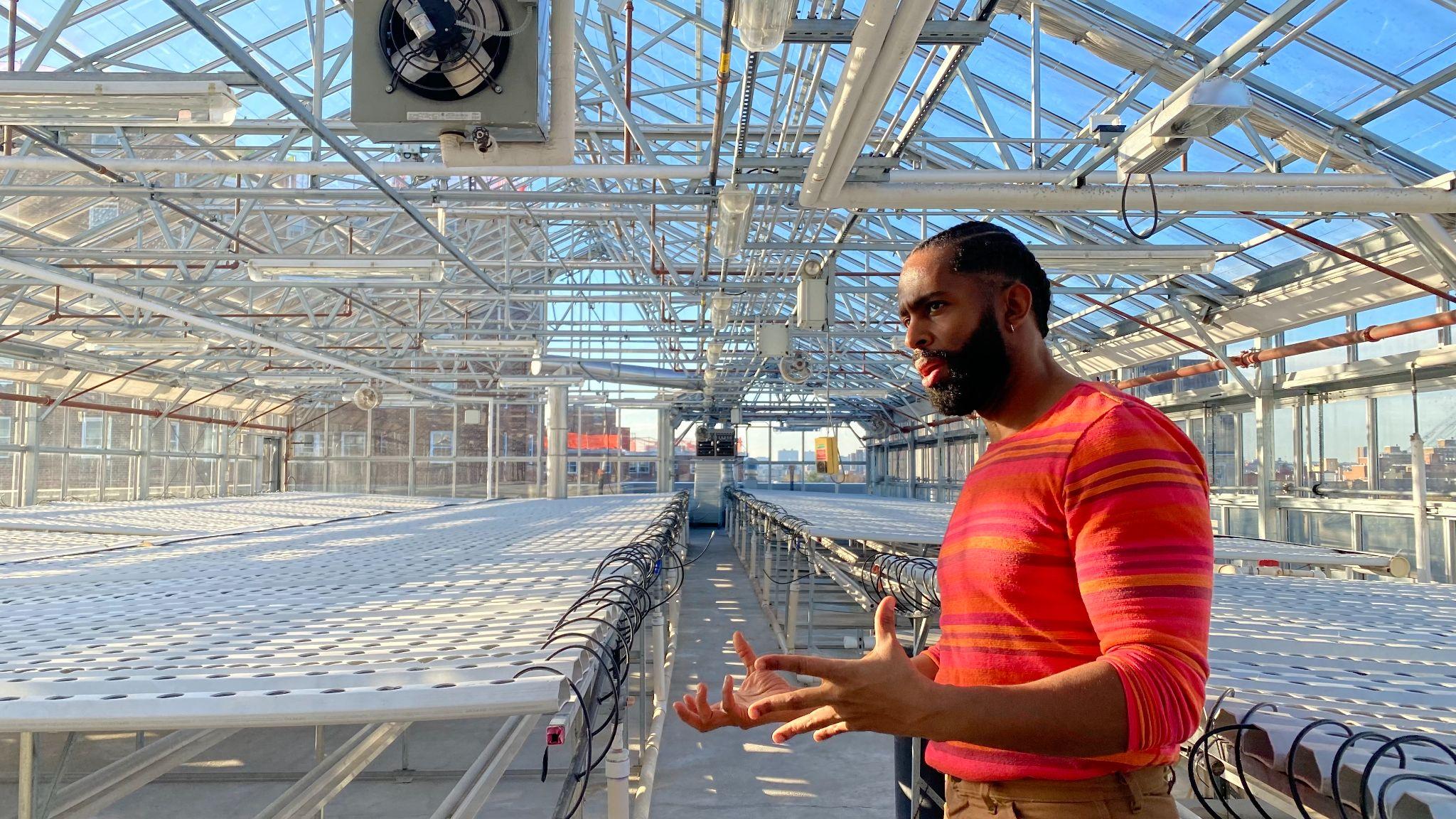Public housing residents may have a new neighbor next year: an urban farm in the air.
On the roof of Arbor House, an affordable housing structure next door to the Forest Houses in Morrisania, will soon be home to ReBorn Farms, a greenhouse garden that can grow enough fresh vegetables for hundreds of families.
Founder Henry Obispo hopes ReBorn Farms will increase the health and economic power of Bronx residents. Besides providing healthy food for the surrounding community, it will also be a place to learn about growing plants and healthy eating.
The project also highlights the possibilities of green technology in an urban environment. Plants will be watered with rain collected from the rooftop, with timers regulating the air, heat, and water flows. Obispo hopes that the rooftop will be able to produce enough vegetables to feed around 600 families year round.
Arbor House was built on NYCHA land in 2013 by a private developer. In exchange for favorable prices for the land, the developers pledged to give 25% of the housing units to NYCHA residents, and another 25% to members of the local community.
Arbor was originally praised for its platinum-certified environmental features. But the building now scores a “D” for energy efficiency, according to a placard displayed in the window. Sky Vegetables, the company that originally occupied the greenhouse, appears to have been inactive for several years.
Neither Sky Vegetables nor the building’s developer, Blue Sea Development, responded to multiple phone calls.
Some tenants in the building were only dimly aware that their building had a greenhouse. Mark Quiles, a 23-year-old restaurant worker who lived in the building for the past year, had never even seen anyone going up to the roof. ”That’s actually exciting,” he said, when he heard about Obispo’s project.
“The idea is to grow food centering the people and where the needs are,” Obispo explained in a telephone interview. He contrasts that with what he describes as a “trickle-down” system of food distribution that currently prevails in the South Bronx.
That “trickle-down” system has resulted over the years in a food desert where around 20% of residents don’t consume fruit and vegetables on a daily basis, according to government data. Bronx residents also suffer from elevated rates of obesity and diabetes, two illnesses closely linked to nutritional deficiencies.
For Obispo, the rooftop farm is only the latest in a long string of projects centered around food and nutrition. Born in the Dominican Republic, he described a childhood surrounded by food and nature, before moving to the Bronx at age 5.
“Food is my love language,” Obispo said. “When I think about community, the way I can engage is like that.”
In 2013, Obispo founded the United Business Cooperative, a group of small restaurant owners who pooled their purchasing power to source local produce.
Three years later, in partnership with two other community organizations, the cooperative introduced the Bronx Salad, a dish of local ingredients to highlight Bronx diversity as well as healthy eating. The original recipe called for a mix of black beans, mango, plantain chips and other vegetables, atop a bed of nutritionally-dense leafy greens that could be grown easily in the South Bronx.
Over the following years, the Bronx Salad was served up at dozens of local restaurants, as well as elementary schools, museums and other community institutions.
Some of Obispo’s ventures faced bigger challenges. In 2016 he launched Born Juice, a social enterprise seeking to provide hyper-local juice products made from Bronx-grown vegetables. After several years as a pop-up in museums and cultural centers, the company was almost ready to open its first storefront—and then the pandemic hit.
Now, Obispo sees ReBorn farms as the culmination of all those years of work. In February, it was among 14 projects selected by City Fellowship, a six-month mentorship program by the NYC Economic Development Corp. and Company Ventures to support social entrepreneurs.
The goal of the fellowship program is to identify people who could help solve social problems in the city. Obispo’s project was a “compelling candidate,” according to Jonathan Lane of the Economic Development Corp.
“We have to import most of our food,” Lane added. “It is incredibly important for us to have food resilience.”
And in September, the project won recognition by the Basque Culinary Center, a Spain-based organization that supports innovations in food technology. The prize came with a month-long mentorship in Spain. Along with three other finalists, ReBorn will make its final pitch to investors in March 2023.
But there is still a lot of work to do before Bronxites can start crunching on ReBorn lettuce. First of all, ReBorn must start planting, which is not expected to start before next year. They will also need to hire employees from the surrounding community and build a distribution network. It will take about 12 people to run the greenhouse at full capacity, Obispo said.
Then there’s the question of raising enough money to support those jobs, a cost that Obispo cannot yet quantify in exact terms. But he hopes to draw funding from local investors and organizations.
“We want it to be a democratic way of fundraising because we want local people to have ownership,” Obispo explained.
“We’re open for donations, but the idea is to have people be part of the system,” he added. “They should create it, they should uphold it, and they should reap rewards.”

